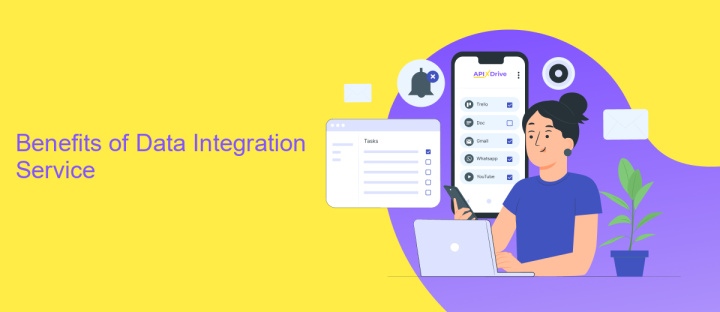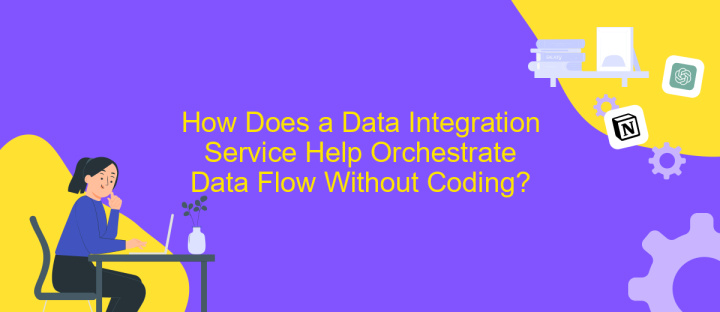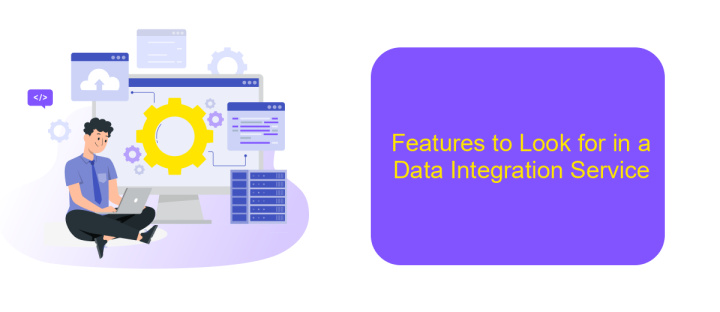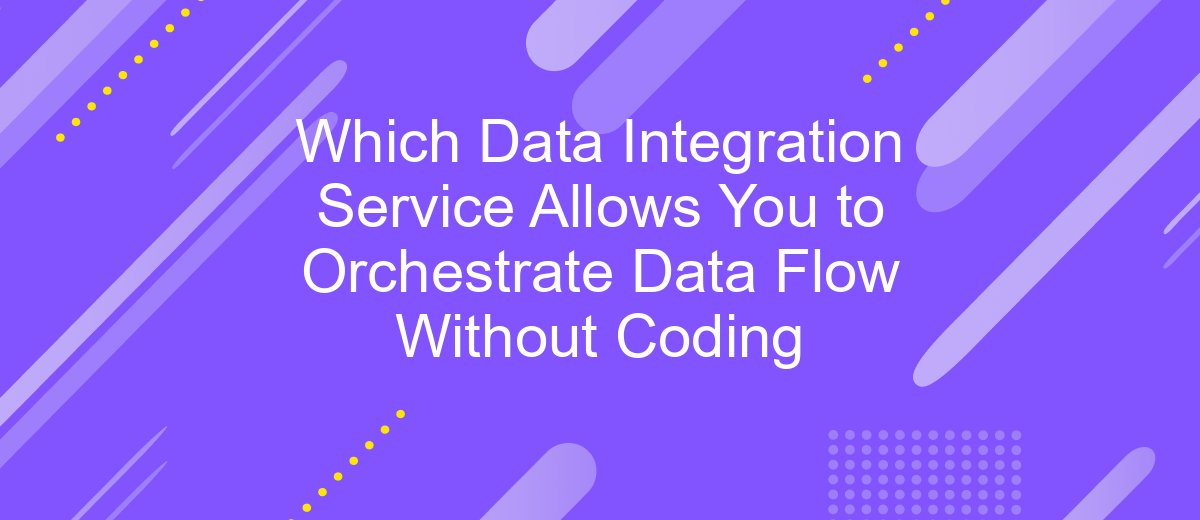Which Data Integration Service Allows You to Orchestrate Data Flow Without Coding
In today's data-driven world, businesses need efficient ways to manage and integrate data from various sources. Choosing the right data integration service can significantly impact your operations. This article explores which data integration service allows you to orchestrate data flow seamlessly without the need for coding, enabling you to streamline processes and make data-driven decisions more effectively.
Introduction
In today's data-driven world, businesses are increasingly reliant on efficient data integration services to streamline their operations and drive informed decision-making. One of the key challenges faced by organizations is the need to orchestrate complex data flows without the burden of extensive coding. This is where modern data integration platforms come into play, offering user-friendly solutions that empower users to manage data seamlessly.
- Automated data workflows
- Drag-and-drop interface
- Real-time data synchronization
- Scalability and flexibility
- Comprehensive data transformation tools
These features not only simplify the data integration process but also ensure that businesses can focus on deriving actionable insights from their data rather than getting bogged down by technical complexities. By leveraging a no-code data integration service, organizations can enhance their data management capabilities, reduce operational costs, and improve overall efficiency. This article explores the best data integration services that enable seamless data orchestration without the need for coding expertise.
Benefits of Data Integration Service

Data integration services offer numerous benefits, making them essential for modern businesses. One of the primary advantages is the ability to streamline and automate data workflows, reducing the need for manual coding. This not only saves time but also minimizes the risk of human error. Services like ApiX-Drive enable users to easily set up and manage integrations between various applications and data sources, ensuring seamless data flow and consistency across the organization.
Another significant benefit is improved data accuracy and accessibility. By consolidating data from multiple sources into a single, unified platform, businesses can gain a comprehensive view of their operations. This holistic perspective facilitates better decision-making and enhances overall efficiency. Additionally, data integration services often come with robust security features, ensuring that sensitive information is protected throughout the integration process. With tools like ApiX-Drive, companies can confidently manage their data integrations without the need for extensive technical expertise, allowing them to focus on their core business objectives.
How Does a Data Integration Service Help Orchestrate Data Flow Without Coding?

Data integration services streamline the process of managing and coordinating data flows without the need for coding expertise. These platforms offer user-friendly interfaces that allow users to design, execute, and monitor data workflows through visual tools and drag-and-drop functionalities.
- Visual Workflow Design: Users can create complex data pipelines using graphical interfaces, eliminating the need for scripting or programming.
- Pre-built Connectors: These services provide a wide range of pre-built connectors to various data sources, simplifying the integration process.
- Automated Data Transformation: Built-in tools for data transformation allow users to clean, format, and enrich data without writing code.
- Error Handling and Monitoring: Real-time monitoring and error-handling features ensure smooth and reliable data flow operations.
By leveraging these features, businesses can efficiently manage their data integration needs, reducing the time and effort required to maintain data workflows. This not only enhances productivity but also ensures that data is consistently accurate and up-to-date across all systems.
Features to Look for in a Data Integration Service

Choosing the right data integration service is crucial for seamless data management and workflow automation. It is essential to consider several key features that can significantly impact your data operations. A robust data integration service should offer a user-friendly interface, allowing non-technical users to build and manage data flows effortlessly.
Another critical feature is the ability to connect to a wide range of data sources and destinations. This ensures that the service can handle diverse datasets and integrate them efficiently. Additionally, look for services that provide real-time data processing and monitoring capabilities, as these are vital for maintaining data accuracy and timeliness.
- Drag-and-drop functionality for easy workflow design
- Comprehensive library of pre-built connectors
- Scalability to handle growing data volumes
- Robust security measures to protect sensitive data
- Customizable data transformation tools
Lastly, consider the service's support and documentation. A responsive support team and detailed documentation can make a significant difference in overcoming any challenges you might face. By focusing on these features, you can ensure that your chosen data integration service meets your business needs effectively.


Conclusion
In conclusion, choosing the right data integration service that allows you to orchestrate data flows without coding is crucial for streamlining business operations and improving efficiency. Services like ApiX-Drive offer a user-friendly platform that enables seamless integration between various applications and systems without the need for complex programming skills. This empowers businesses to focus on their core activities while ensuring their data flows smoothly and accurately.
Moreover, the ability to automate data processes and create custom workflows through intuitive interfaces significantly reduces the time and resources required for manual data handling. By leveraging such services, organizations can enhance their data management capabilities, ensure real-time data synchronization, and ultimately drive better decision-making. As the demand for efficient data integration solutions grows, platforms like ApiX-Drive will continue to play a pivotal role in helping businesses achieve their digital transformation goals.
FAQ
What is a data integration service that allows you to orchestrate data flow without coding?
How does a no-code data integration service work?
What types of applications can be integrated using a no-code data integration service?
Do I need technical expertise to use a no-code data integration service?
Can a no-code data integration service handle complex workflows?
Time is the most valuable resource in today's business realities. By eliminating the routine from work processes, you will get more opportunities to implement the most daring plans and ideas. Choose – you can continue to waste time, money and nerves on inefficient solutions, or you can use ApiX-Drive, automating work processes and achieving results with minimal investment of money, effort and human resources.

